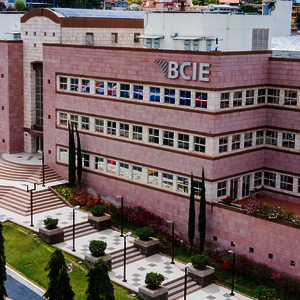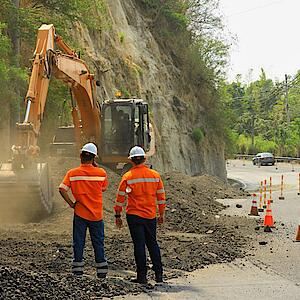CABEI promotes actions to combat climate change

According to CABEI's Executive President, Dr. Dante Mossi, "the idea is to innovate in the area of sustainable finance, and this is our commitment to the region”.
Tegucigalpa, September 27, 2021. – The environmental challenges facing Central America are becoming more and more challenging; and aware of this reality, the Central American Bank for Economic Integration (CABEI) offers its member countries financial solutions to implement actions in favor of sustainable development in the region.
With 60 years of foundation, CABEI reaches the Bicentennial of Central America's independence, leading actions with elements for economic reactivation but always hand in hand with a social commitment and environmental sustainability.
It is worth mentioning that at the 2019 Board of Governors, the multilateral issued its Zero Carbon Declaration, whereby CABEI reinforces its work to identify initiatives related to promoting climate change mitigation and prevention, support for strengthening low-carbon economies, climate change resilient societies, sustainable food production, clean energy generation and energy efficiency.
In this regard, CABEI has mobilized financial resources in the order of US$4,989.0 million over the last five years for investments that will make it possible to move towards a fair and inclusive economy that is low-carbon and resilient to the effects of climate change.
"CABEI's main focus is on generating employment, attracting investments with a positive socio-environmental impact and supporting countries in achieving sustainable finances in order to contribute to the Sustainable Development Goals," said CABEI Executive President Dr. Dante Mossi.
So far this year, the CAMBio II Program has been approved for US$28 million, which will benefit approximately 69,720 people who will live in environments that are more resilient to climate change.
In terms of pre-feasibility studies, CABEI is promoting, with an investment of US$1.5 million, the complementary studies and Financing Proposal for the Costa Rican Electric Passenger Train Project (PPF) and, with an amount of US$749,584.00, the formulation of a Green Growth Strategy based on the generation of Concept Notes for potential Climate Change projects in Nicaragua.
In this regard, the head of CABEI said that to promote compliance with environmental actions, the Bank works "actively" designing financial instruments, one of which is the Theoretical Framework of Social Bonds linked to social and environmental indicators that take into account the climate change commitments assumed by the governments of the region.



![[Translate to English:] [Translate to English:]](/fileadmin/_processed_/e/3/csm_WhatsApp_Image_2024-04-18_at_2.12.23_PM__2__590ef43ade.jpeg)

